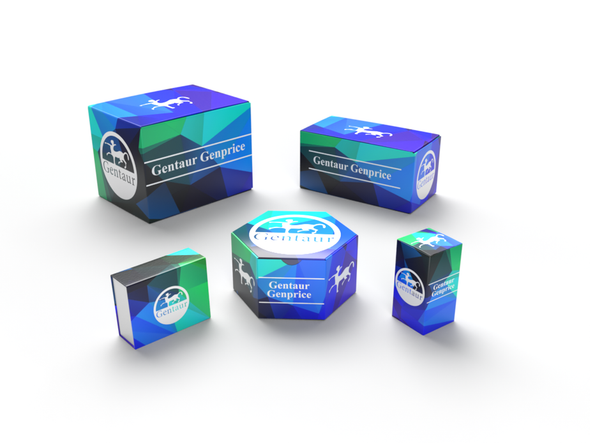Description
MARK3 Antibody | 62-742 | Gentaur UK, US & Europe Distribution
Host: Rabbit
Reactivity: Human
Homology: Predicted species reactivity based on immunogen sequence: Mouse, Rat
Immunogen: This MARK3 antibody is generated from rabbits immunized with a KLH conjugated synthetic peptide between 570-601 amino acids from the C-terminal region of human MARK3.
Research Area: Signal Transduction
Tested Application: WB, IHC-P
Application: For IHC-P starting dilution is: 1:50~100
For WB starting dilution is: 1:1000
Specificiy: N/A
Positive Control 1: N/A
Positive Control 2: N/A
Positive Control 3: N/A
Positive Control 4: N/A
Positive Control 5: N/A
Positive Control 6: N/A
Molecular Weight: 84 kDa
Validation: N/A
Isoform: N/A
Purification: This antibody is purified through a protein A column, followed by peptide affinity purification.
Clonality: Polyclonal
Clone: N/A
Isotype: Rabbit Ig
Conjugate: Unconjugated
Physical State: Liquid
Buffer: Supplied in PBS with 0.09% (W/V) sodium azide.
Concentration: batch dependent
Storage Condition: Store at 4˚C for three months and -20˚C, stable for up to one year. As with all antibodies care should be taken to avoid repeated freeze thaw cycles. Antibodies should not be exposed to prolonged high temperatures.
Alternate Name: MAP/microtubule affinity-regulating kinase 3, C-TAK1, cTAK1, Cdc25C-associated protein kinase 1, ELKL motif kinase 2, EMK-2, Protein kinase STK10, Ser/Thr protein kinase PAR-1, Par-1a, Serine/threonine-protein kinase p78, MARK3, CTAK1, EMK2
User Note: Optimal dilutions for each application to be determined by the researcher.
BACKGROUND: MARK proteins are involved in the specific phosphorylation of microtubule-associated proteins for tau, MAP2, and MAP4. MARK3 was originally identified as a marker that was induced by treatment with DNA damaging agents, and loss of MARK3 was found with carcinogenesis in the pancreas. MARK3 may be involved in cell cycle regulation, and alterations in the MARK3 gene may lead to carcinogenesis.










